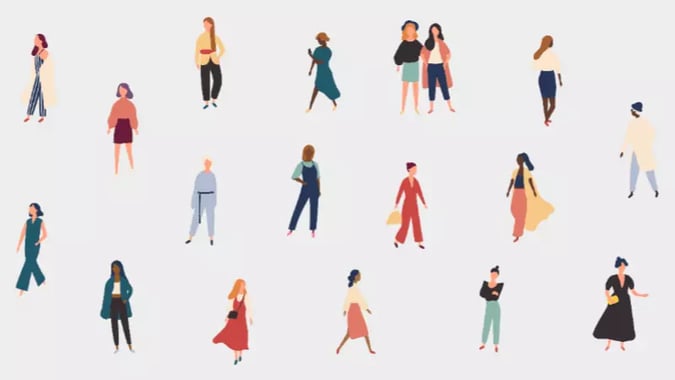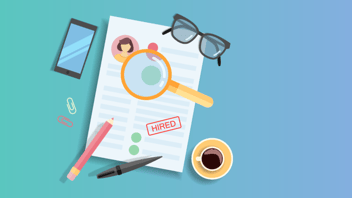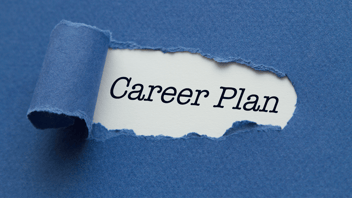
16 days of global activism for the advancement of women

Late November to early December sees 16 days of global activism commencing with the United Nation’s International Day for the Elimination of Violence Against Women (25th November) and concluding with International Human Rights Day (10th December).
Led by the UN Secretary-General and UN Women since 2008, the campaign responds to the reality that 1 in 3 women globally will face violence in their lifetime. The movement calls for global action to increase awareness, promote advocacy and create opportunities for discussion.
Impact in Australia
In Australia, domestic violence is the leading cause of severe injury, disability, and death for women between the ages of 14 – 45. In addition, an average of one woman per week is killed by her current or former partner. The Covid-19 lockdowns over recent years only contributed to this issue with reports that household violence including assault, sexual threats, and control, increased by between 10 – 15% across the various states and territories.
Sexual harassment in Australian workplaces is also a major issue, with women facing higher rates of harassment than men as well as higher rates of victim blaming when reporting occurs.
These are societal challenges which require multi-faceted approaches and solutions, shifting from past reactive models which require complaints from individuals (often the victim) to proactive models of the future. This requires positive actions focused on increasing safety - in families, in communities and in workplaces.
A legislative shift
In recent years, there has been an increase in public interest on this topic due to individuals, families and communities taking a stand and having the courage to speak out and share their stories with the goal of increasing awareness and demanding change. Hannah Clark, Brittany Higgins, Grace Tame and Christine Holgate became recognisable names, and through their tragedies and adversity, amplified the call for urgent and genuine action on the topics of domestic violence, sexual abuse, harassment, and workplace bullying.
Whilst this topic had been stalled by past governments, it now has greater promise and momentum with Prime Minister Anthony Albanese pledging major funding and resourcing to the issue. His government recently legislating 10 days of paid family and domestic leave to all workers in Australia (permanent, part-time, casual, etc). Effective from 1 February 2023, this move has been welcomed by advocacy groups as it will assist in lowering the barrier of women having to choose between personal safety and maintaining employment. In addition, the government has pledged increasing community support workers, emergency housing, educational programs, and a bespoke plan for First Nations peoples. He has also pledged to implement all recommendations as put forward in the 2020 Respect@Work Report by the Australian Human Rights Commission.
The above should be welcomed by Australian employers as this increased focus and support will allow them to support and retain their employees through challenging and traumatic event(s), but by doing so will contribute to increased loyalty, retention, and productivity for these employees.
Creating cultures of safety
To contribute to positive change, employers need to recognise the legal, moral, and ethical responsibility of providing a safe workplace for all employees and being a safe place for employees to turn if they are facing violence or harassment in their home or personal lives.
Safe Work Australia recommends that strategies regarding the prevention and management of workplace sexual harassment, intimidation and bullying are integral components of an organisations approach to workplace health & safety (WHS).
A key factor in reducing violence and harassment directed at anyone is to foster inclusive and supportive cultures where senior leaders set a positive tone and a ‘no-tolerance policy’ is applied to toxic behaviours, attitudes, and actions. Likewise, providing praise to those who promote positive, respectful, and inclusive behaviours will reduce the fear associated with victims coming forward and increase overall organisational integrity.
A review of learning and development programs on topics like identifying and understanding unconscious bias, the value of diversity and inclusion, and how bystanders can effectively intervene to stop inappropriate behaviour is also important to ensure that an integrated approach is taken to tackle these issues at an organisational and societal level.
In the workplace
At Six Degrees Executive, as part of our HR and WHS focus we have in recent years developed dedicated policies to cover Equal Opportunity, Bullying & Harassment as well as Domestic and Family Abuse. These policies cover a range of initiatives including victim and whistle-blower protection, flexible work arrangements, additional leave entitlements, safety planning and support.
In 2020 and again in 2022, we invested in several employees completing a Mental Health First Aid Certificate to ensure we have points of contact in each state that others can turn to for assistance and who have the skills to manage initial conversations, escalate within the business and direct to external support as required. In addition, we have an Employee Assistance Program (EAP) intended for employees and their family members who face difficulties that affect their mental wellbeing and/or safety.
How we can help
As a leading Australian recruitment agency, we are firm believers in promoting the advancement of women and equality in all that we do. We are committed to making a positive difference to the lives of our employees, candidates, clients, and our communities.
If you are motivated to be part of the advancement of your organisation on these topics and require assistance or advice, please reach out. We look forward to working together on strategies and solutions to ensure safe and inclusive cultures for everyone to productively participate in.
If you have found this article triggering, you can find helpful resources on the Beyond Blue and RESPECT websites. For 24-hour free counseling in Australia, call Lifeline on 13 11 14.
If you require support:
Read more:
- https://www.un.org/en/observances/ending-violence-against-women-day
- https://www.un.org/en/observances/human-rights-day
- https://www.aic.gov.au/sites/default/files/2020-07/sb28_prevalence_of_domestic_violence_among_women_during_covid-19_pandemic.pdf
- https://humanrights.gov.au/our-work/sex-discrimination/publications/respectwork-sexual-harassment-national-inquiry-report-2020
- https://metoomvmt.org/
- https://iview.abc.net.au/show/7-30-special-why-women-are-angry
- https://www.safeworkaustralia.gov.au/safety-topic/hazards/workplace-sexual-harassment
- https://mhfa.com.au/courses/public/types/standardedition4
- http://eap.org.au/about/
Related


Get hired in a competitive market
It’s a tough world out there. Are you prepared to get hired in a competitive market? Here are some...

Developing a Career Plan
Just as any successful organisation meticulously crafts a clear and strategic business plan to...

 Accessibility
Accessibility
